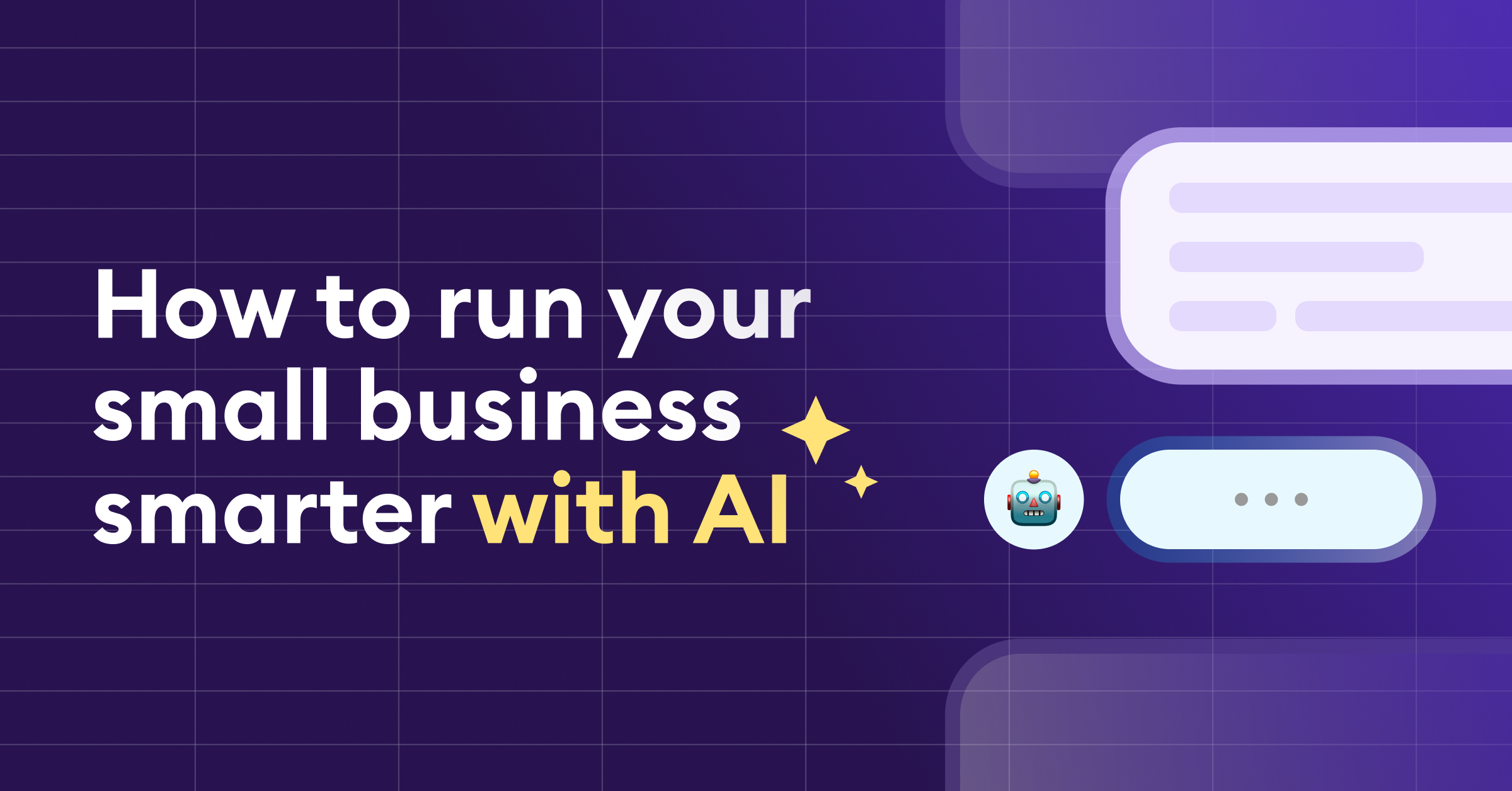How AI is changing financial reporting + what founders should do now
.png)
Financial reporting often slows teams down. Spreadsheets pile up. Closing the books takes too long. And by the time reports are ready, the numbers are already out of date. AI changes that. It delivers live, accurate insights so you can make faster decisions without chasing down data.
Instead of flipping through PDFs or stitching together numbers from spreadsheets, teams get a single, accurate view of their finances. AI-assisted tools turn raw data into clear answers, so you can stay focused on running the business.
This article breaks down how AI is changing financial reporting and what business leaders should do now to stay ahead.
What founders are used to: last-minute reconciliations or misaligned books
Many founders and entrepreneurs are familiar with DIY financial reporting methods. For those who either have or are seeking investors, they can know the pain of balancing the financial books while seeking that new round of fundraising. It’s best to avoid last-minute DIY financial updates. At best, last-minute financial tinkering forces you to stay up late getting it done; at worst, they’re incomplete, wrong, or misleading.
Even with outsourced help, things can go wrong when reporting systems lack accuracy or transparency. It’s not uncommon for founders to spot errors in key metrics without knowing where they came from or how to fix them. That kind of uncertainty slows you down right when speed matters most.
Traditional ways of reporting on data for startups usually put entrepreneurs in a bad spot at the most inopportune times, when they need to move the business forward. New tools powered by AI flip that dynamic. Instead of chasing down reports, you get real-time answers to the questions that matter. You’ll see key metrics like burn rate, runway, or spend by vendor exactly when you need them.
What AI changes: real-time, question-driven insights
Let’s review some facts:
A Gartner survey showed how 60% of finance teams still “heavily rely” on manual reconciliation tasks like closing out the month’s finances. Furthermore, a report by TeamPay cited that 18% of accountants admit to daily mistakes. Not a good combination.
Let’s be real, humans are decent at manual reconciliations, but fantastic at using accurate and reliable financial insights to make sound decisions based on the context and understanding of their business. An AI-component takes it a level further, from reports that a founder must interpret to a report that founders can interact with, have a conversation with, and utilize to further understanding.
Want to see what that looks like in practice? Pilot’s Instant Answers tool lets you ask real-time questions about your finances and get immediate, context-aware responses—no spreadsheet stitching required.
Why clean data matters
A blog by SMARTe outlines the “1-10-100 rule.”
- $1 to verify an error
- $10 to fix an error post-entry
- $100 to do nothing or reconcile and fix the error if done after final reporting
So, the answer to the question, “Why does clean data matter?” For one, money.
However, it also helps a company culture by keeping the lifeblood of the business (finances) clean and organized. Remember when we said humans are decent at manual reports and reconciliations? Well, AI is phenomenal at it, and AI can help clean and normalize data that equips humans with the data set that has historically been littered with errors, which sets companies back.
You should check out Pilot’s solution. Click to explore our AI-supported bookkeeping services.
Where Pilot is headed: Pilot AI and the future of financial visibility
Pilot AI is built for founders who don’t have time to guess on how to navigate through dashboards or PDFs when they need answers. Instead, you’ll be able to ask direct questions, like:
- “What were gross margins on last quarter’s top three SKUs?”
- “Why did CAC rise in April?”
- “Based on current numbers, what is our 12-month cash flow projection?”
This isn’t just small talk with a robot. AI Labs functions as a dynamic intelligence layer on top of your already accurate books. That means no guesswork, no reformatting, and no delay.
It’s a scalable reporting mechanism designed for entrepreneurs and founders, not financial analysts. You get insights in the language you speak and think in, so you can make decisions faster, without translating rows of numbers or needing to understand financial terms you’ve never heard of.
Curious about adding deeper strategic support? Learn more about our Fractional CFO Service at Pilot.
What should founders expect next?
AI can’t replace your finance team. They’re too important in using the data that an AI financial tool can provide. But it will free them (and you) from the constant cycle of formatting, reconciling, and cleaning. The result is fewer delays, less ambiguity, a faster path from question to confident decision, and a team with more time to do the thing they do best–think, process, and act.
Expect AI to become the conduit between your financial operations and your business decisions. The winners will be the ones who adopt early and build systems that scale as they grow.
Smarter books, smarter decisions
Financial reporting is evolving. Founders who continue relying on last-minute reconciliations and spreadsheets will fall behind. Those who lean into new technologies and embrace AI-driven insights will move faster, fundraise smarter, and operate with a sharper view of what’s working and what’s not.
Pilot is building the infrastructure to help you ask better questions and get better answers.
Want smarter financial reporting through AI financial tools? Great, let’s talk.



.png)
%201%20(1).png)
